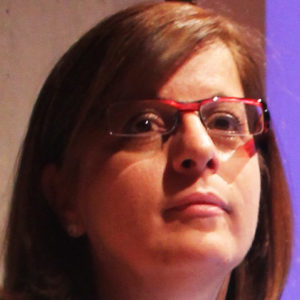Open Science in a Connected Society

Keynote Abstract
Open science comes on the heels of the fourth paradigm of science, which is based on data-intensive scientific discovery, and represents a new paradigm shift, affecting the entire research lifecycle and all aspects of science execution, collaboration, communication, innovation. From supporting and using (big) data infrastructures for data archiving and analysis, to continuously sharing with peers all types of research results at any stage of the research endeavor and to communicating them to the broad public or commercial audiences, openness moves science away from being a concern exclusively of researchers and research performing organisations and brings it to center stage of our connected society, requiring the engagement of a much wider range of stakeholders: digital and research infrastructures, policy decision makers, funders, industry, and the public itself.
Although the new paradigm of science is shifting towards openness, participation, transparency, and social impact, it is still unclear how to measure and assess these qualities. This presentation focuses on the way the scientific endeavor is assessed and how one may shape up science policies to address societal challenges, as science is becoming an integral part of the wider socio-economic environment. It discusses how one may measure the impact science has on innovation, the economy, and society in general, and how the need for such measurement influences the collection, stewardship, preservation, access, and analysis of digital assets. It argues that an open transfer of both codified and tacit knowledge lies at the core of impact creation and calls for a consistently holistic systematic approach to research. In particular, it includes codified knowledge in the form of traditional publications and datasets, but also formal intellectual property (patents, copyright, etc.) and ‘soft’ intellectual property (e.g., open software, databases or research methodologies), as well as tacit knowledge in the form of skills, expertise, techniques, and complex cumulative knowledge, conceptual models, and terminology.
Putting the spotlight on (open) data collection and analysis, this presentation further illustrates a use case based on the collaboration between OpenAIRE (www.openaire.eu) and the Data4Impact project (www.data4impact.eu) on the use of an open scholarly communication graph, combined with text mining, topic modeling, machine learning, and citation based approaches to trace and classify the societal impact of research funded by the European Commission.
Bio
Natalia Manola is a research associate in the University of Athens, Department of Informatics and Telecommunications and the “Athena” Technology and Innovation Research Center. She holds a Physics degree from the University of Athens, and an MS in Electrical and Computing Engineering from the University of Wisconsin at Madison. She has several years of employment as a Software Engineer and Architect employed in the Bioinformatics sector. From 2009 she has served as the managing director of OpenAIRE (www.openaire.eu), a pan European e-Infrastructure supporting open access in all scientific results, OpenMinTeD (www.openminted.eu) an infrastructure on text and data mining.
She has served in EC’ Future Emerging Technology (FET) advisory group 2013-2017 and is currently a member of EC’s Open Science Policy Platform, a high level Expert Group to provide advice about the development and implementation of open science policy in Europe. Her research interests include the topics of e-Infrastructures development and management, scientific data management, data curation and validation, text and data mining complex data Visualization, and research analytics.